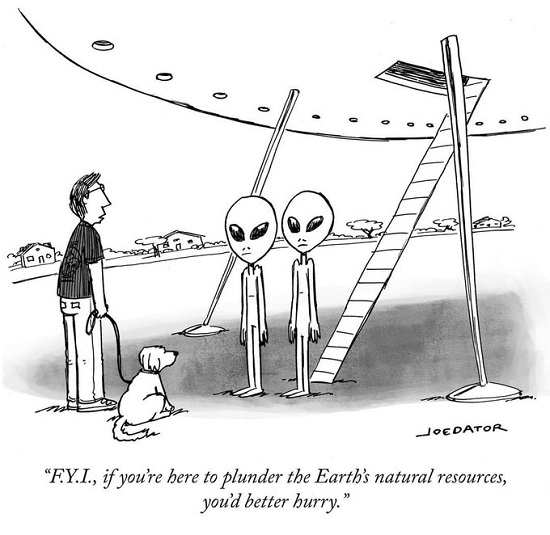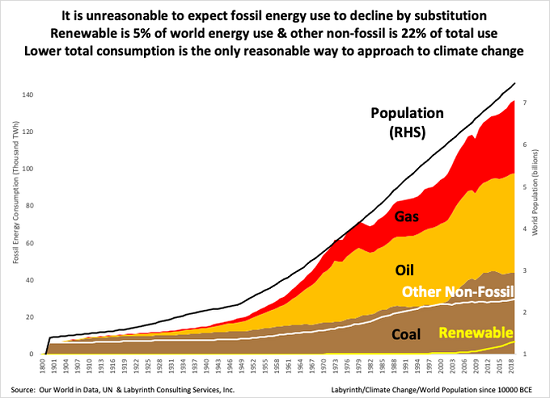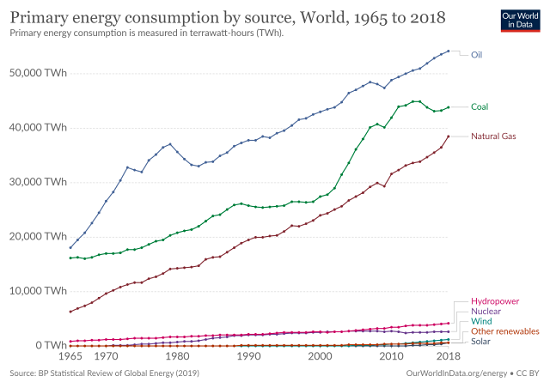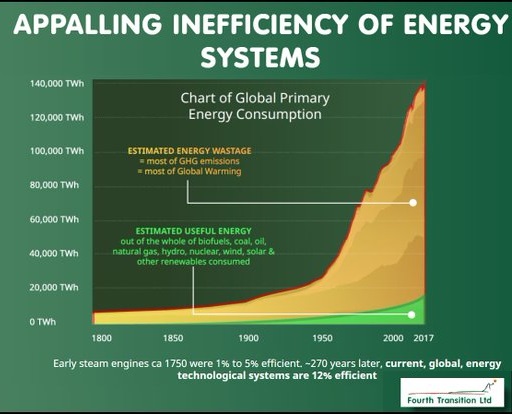
The rewards need to change from “waste is growth” to hyper-efficiency, conservation, right to repair and made things crafted to last a generation or longer and be recyclable at scale.
Humans like novelty but don’t like modification. It’s easy to confuse the 2. When we say, “I require a modification,” what we imply is “I ‘d like to be revitalized by some novelty,” not “I want all the uncertainty, ambiguity and potential for mistakes and losses that include change.”
Humans like a new model of truck (novelty) however do not like their truck is eliminated (change).
Considering that life is change, all of us some experience with it. Some modifications happen to us, others are the result of conscious choices we make.
Every individual has a mix of abilities, techniques and experiences with both type of modification. A few of us are much better at dealing with one kind or the other, some do not deal with either very well, some deal with all change remarkably well.
Very few of us say, “I sure would like to have a health crisis.” We don’t select the health crisis, however we do pick our reaction.
Like many of you, I’ve had accidents (health crises), significant career modifications and several relocate to different locales.
as a general rule, modifications we choose/ direct have a push-pull element: there’s something negative we want to prevent or end, and something favorable we wish to get.
For example, we might understand that our current task is a dissatisfactory dead-end (the unfavorable) and we need a more satisfying career (the positive).
A health crisis is unfavorable however the prospect of this being a catalyst for a healthier way of life is favorable.
Being fired or losing our task is negative (not the change we wanted or chose) once we accept that our life is going to alter one method or the other, we can view this negative as a positive driver– a move we didn’t pick for different reasons, however a favorable move because otherwise we wouldn’t have actually taken all the risks and uncertainties that opt for making another profession.
As a types, humanity is approaching the end of the previous 200 year duration of growth of energy intake. In the initial phases of this large growth, much of the brand-new energy went into positive improvements: rural electrification, huge leaps in food production and healthcare, and so on.
However beyond a specific point, energy and resources are being spent on intake rather than investment, what I call “waste is development:” once we set energy/ resource usage as the step of success, automobiles burning fuel in traffic jams, food that has actually been thrown away, half-empty airplane and so on are considered as favorable “development” due to the fact that more fuel and resources were consumed.
Needless to say, waste is not development, it’s misusing precious resources.
Human beings habituate to brand-new conditions with impressive ease. Conditions that are initially dreadful (Gulag prison camps, and so on) are quickly just “everyday life.”
So human beings have actually habituated to “waste is development” and consider squandering energy and resources perfectly normal and preferable, as waste is more convenient than conservation and efficiency.
When humans are told 1) hydrocarbons are a limited resource that will quickly become more pricey to extract and 2) burning hydrocarbons is messing up the biosphere all of us depend upon, few people think “gosh, we need to utilize much less energy.”
Rather, they believe, “Let’s replace those 30 billion barrels of oil, the 30 billion (equivalent) barrels of natural gas and the 30 billion (equivalent) barrels of coal we burn every year with “green energy” that doesn’t contaminate the biosphere with greenhouse gases and other negative effects.”
Since people don’t like modification however they do like novelty, it’s really simple to expect electric-powered air-taxis (little helicopters), a billion all-electric cars, and so on, all powered by “green” “sustainable” energy sources such as wind turbines and solar panels.
The transition away from hydrocarbons will not require any sacrifices or hassle, it will be a smooth shift from the petroleum-fueled vehicle to the electrical car, from gas-fired generators to solar/wind and batteries, and so on.
Whatever in the new energy system will naturally be recyclable.
Regrettably, the awaited smooth shift to all renewable energy is magical thinking in essentially every way.
Renewables are not actually sustainable, they wear and must be replaced, so they are “exchangeable” not “renewable.”
All these “changeable” energy sources take in incredible quantities of minerals, metals and energy to be built, maintained, and changed every 10 to twenty years. (The theoretical life-span is declared to be thirty years, however the real-world life-span is consequentially less.)
Given that all these “exchangeable” energy sources are scattered and intermittent, the energy they produce fluctuates throughout a wide variety and needs to be concentrated to be stored/ utilized in batteries or mechanical storage (reservoirs with hydro-powered generators, and so on) or chemical storage (converting electricity into hydrogen to be utilized as a fuel).
The billions of batteries required to save all this electrical energy should also be changed every years or two, and recycling batteries is hard and costly. There is nothing from another location “green” about mining the planet for lithium, cobalt, and so on or making billions of batteries.
“Let’s Not Blow Up a Mountain and Call It Green”
When it comes to recycling: a small percentage of the “exchangeable” energy sources or batteries are being recycled due to the fact that it’s too challenging and expensive.
The scale required to change 90 billion barrels of hydrocarbons with diffuse, intermittent energy sources and batteries is hard to understand.
Here is the reality:
“The yearly output of Tesla’s Gigafactory, the world’s biggest battery factory, might keep 3 minutes’ worth of annual U.S. electrical energy need. It would need 1,000 years of production to make adequate batteries for two days’ worth of U.S. electricity demand. On the other hand, 50– 100 pounds of materials are mined, moved, and processed for every single pound of battery produced.”
This report succinctly sums up the physical limits of wind and solar efficiencies and the impossibility of replacing all hydrocarbons with energy sources that need countless tons of minerals, metals, concrete, and so on, are not recyclable which must be changed every generation. The “New Energy Economy”: An Exercise in Wonderful Thinking
This report summarizes why it’s difficult to acquire all the minerals/metals required: The Mining of Minerals and the Limits to Growth
The Deception of Infinite Economic Development: Even “sustainable” technologies such as electric vehicles and wind turbines face unbreachable physical limitations and exact severe ecological costs.
If you prefer a video discussion, Nate Hagens compresses 15 years of research study into 2 hours and 50 minutes: Earth and Humanity: Misconception and Reality (2:50 hours)
There are numerous other resources that report the exact same physical truths: mining, smelting and transporting the millions of tons of products needed will be devastating for the environment, as it can just be achieved by burning hydrocarbons and desolating the planet.
When it comes to nuclear power: India has actually invested billions of dollars and years in attempting to complete a major thorium reactor, so far without success; to change all hydrocarbon energy with nuclear-generated electricity, the U.S. would have to bring a new reactor online weekly for years. There hasn’t been a single new reactor integrated in years, so this is the acme of wonderful thinking.
It’s a lot easier to offer modification if it’s simple, practical, inexpensive and does not need sacrifices. However this is not how change works.
How change we don’t pick works is: “you had a cardiac arrest and practically passed away. If you wish to live longer than a couple of months, you’ll have to entirely change your lifestyle, diet and fitness.”
Regrettably, there is practically nothing simple, practical or cheap that does not require sacrifices about altering your way of life from the ground up.
To make the essential modifications, we need to fashion a favorable view and different incentives and goals: instead of put mouthfeel and taste above all else, we re-set the incentives to consuming the healthiest foods in the tastiest ways. Instead of find reasons for not working out, we find a type of workout we like (or a minimum of can tolerate) and that can be folded into a brand-new habit.
All of us understand the appeal of wonderful thinking: rather than go through all the hard work of remaking our lifestyle and day-to-day habits, we put our faith in a “miracle diet plan” or comparable.
Humanity’s resistance to required change is easy to understand, but the paradox is we quickly habituate to whatever changes force themselves on us.
That’s our option with energy and the post-hydrocarbon period ahead. The incentives need to change from “waste is growth” to hyper-efficiency, conservation, right to fix and manufactured things engineered to last a generation or longer and be recyclable at scale.
If we can choose a favorable vision and change our rewards and goals, we’ll look back and question why we clung so fiercely to magical thinking and “waste is growth.”




If you discovered value in this content, please join me in looking for options by ending up being a $1/month customer of my work by means of patreon.com.
My brand-new book is offered! A Hacker’s Teleology: Sharing the Wealth of Our Diminishing Planet 20% and 15% discounts (Kindle $7, print $17, audiobook now offered $17.46)
Read excerpts of the book for free (PDF).
The Story Behind the Book and the Introduction.
Current Videos/Podcasts:
Charles Hugh Smith on Secular Inflation (Host Richard Bonugli, 31 min)
My current books:
A Hacker’s Teleology: Sharing the Wealth of Our Diminishing Planet (Kindle $8.95, print $20, audiobook $17.46) Read the very first area free of charge (PDF).
Will You Be Richer or Poorer?: Revenue, Power, and AI in a Traumatized World
(Kindle $5, print $10, audiobook) Read the very first section free of charge (PDF).
Pathfinding our Fate: Preventing the Final Fall of Our Democratic Republic ($5 (Kindle), $10 (print), ( audiobook): Check out the very first area totally free (PDF).
The Adventures of the Consulting Thinker: The Disappearance of Drake $1.29 (Kindle), $8.95 (print); read the very first chapters free of charge (PDF)
Money and Work Unchained $6.95 (Kindle), $15 (print) Read the first area for free (PDF).
End up being a $1/month patron of my work via patreon.com.
KEEP IN MIND: Contributions/subscriptions are acknowledged in the order received. Your name and e-mail stay private and will not be given to any other specific, company or company.
|
Thank you, Roderick M. ($100), for your insanely generous contribution to this website– I am considerably honored by your assistance and readership. |
Thank you |
, Charles M. ($10/month), for your insanely generous pledge to this site– I am considerably honored by your steadfast assistance and readership. |
|
Thank you, Laura R. ($54), for your superbly generous contribution to this website– I am significantly honored by your assistance and readership. |
Thank you |
, Jim B. ($5/month), for your splendidly generous pledge to this site– I am greatly honored by your unfaltering assistance and readership. |

